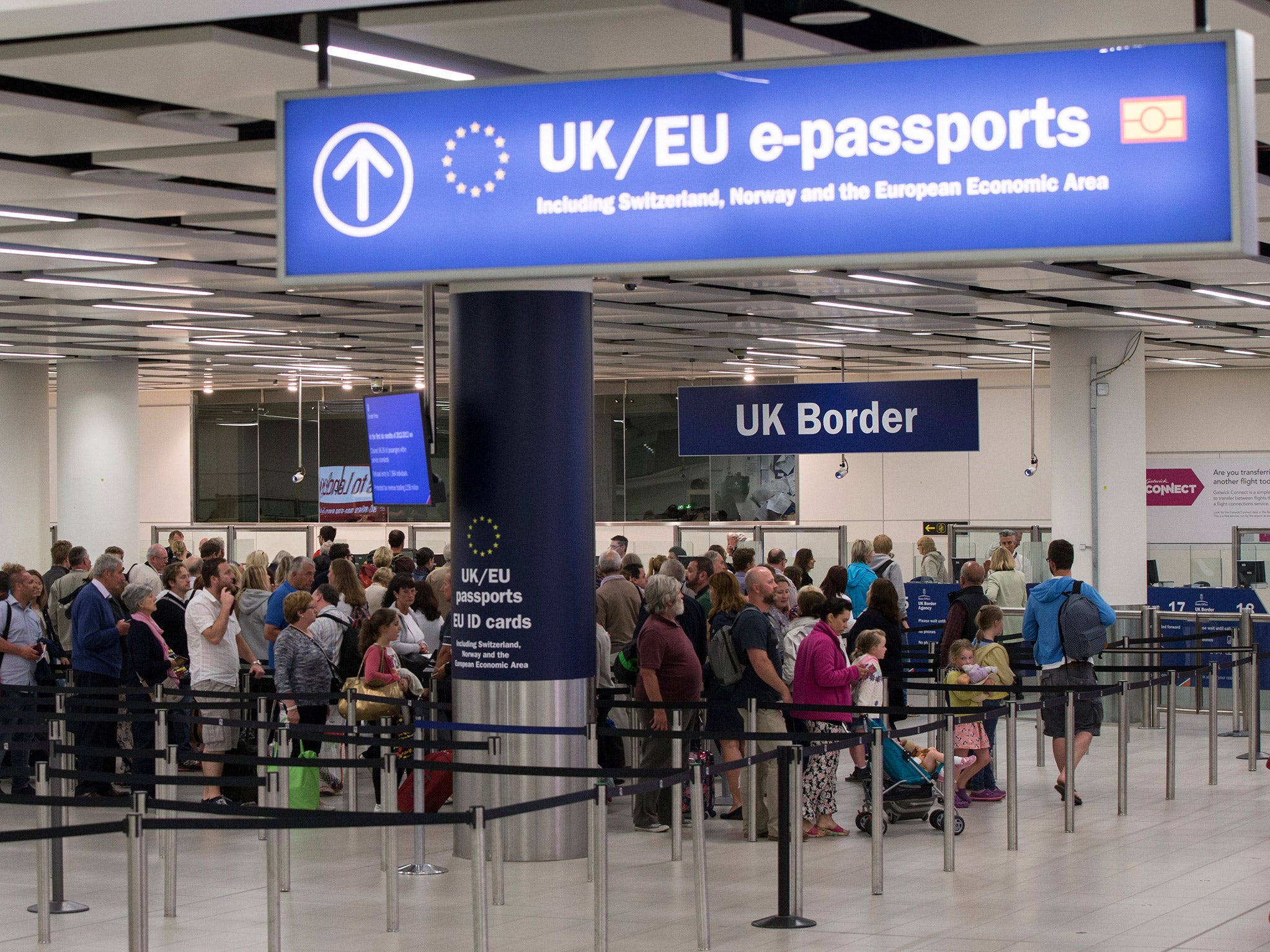Net migration to the UK up but increase 'not statistically significant' for EU and non-EU immigrants
The Office for National statistics said the figures were not a significant departure from rates seen in 2014

Your support helps us to tell the story
From reproductive rights to climate change to Big Tech, The Independent is on the ground when the story is developing. Whether it's investigating the financials of Elon Musk's pro-Trump PAC or producing our latest documentary, 'The A Word', which shines a light on the American women fighting for reproductive rights, we know how important it is to parse out the facts from the messaging.
At such a critical moment in US history, we need reporters on the ground. Your donation allows us to keep sending journalists to speak to both sides of the story.
The Independent is trusted by Americans across the entire political spectrum. And unlike many other quality news outlets, we choose not to lock Americans out of our reporting and analysis with paywalls. We believe quality journalism should be available to everyone, paid for by those who can afford it.
Your support makes all the difference.Net migration to the UK is rising, with more than double the number of people arriving than leaving the country in 2015.
Estimates for the year from the Office for National Statistics (ONS) put net long-term migration at 323,000, an increase of around 10 per cent in the previous year.
“The latest increase in net migration was not statistically significant compared with 2014,” a spokesperson said. “This net increase was the result of a decrease in emigration from 323,000…and immigration being at a similar level to the previous year.”
The number of people arriving in the UK rose by around 2,000 to 617,000 but emigration dropped by almost a tenth to 294,000.
Net migration from the EU, 172,000, saw a slight increase on 2014 and the figure for non-EU citizens was also slightly up at 191,000.
In real terms, EU immigration was up from 246,000 to 257,000, while non-EU immigration was down from 289,000 to 273,000.
The ONS said the changes were “not statistically significant” for either group, although a 15,000 jump in immigration from EU2 countries – Romania and Bulgaria – was notable.
The figures were released days after David Cameron announced the date for a referendum on Britain’s membership of the EU and were expected to become a key point of contention for opposing camps.
Asylum applications also rose for the fifth successive year to 38,878, an increase of 20 per cent, but the refugee crisis has not pushed the figure anywhere near the 2002 peak of 103,000.
Most refugees came from Eritrea, followed by Iran, Pakistan, Sudan and Syria. The additional 1,200 Syrians granted humanitarian protection under the Government’s resettlement scheme were not counted in the figure.
Rates for granting applications varied widely across different nationals, with almost 90 per cent of Syrians being accepted as refugees compared to just a fifth of Pakistani nationals.
Of the 290,000 people who immigrated for work in 2015, almost 60 per cent had already secured a job and the share rose to two thirds for Romanians and Bulgarians.
Around two million non-British EU nationals are currently working in the UK, as well as 1.2 million non-EU nationals and 28.3 million Brits, according to the latest statistics from the Labour Force Survey.
Visas granted for skilled work and other working visas were on the rise but those for study fell slightly.
James Brokenshire, the immigration minister, said the Government was attempting to reduce migration "to sustainable levels" and hailed the EU deal secured by the Prime Minister as a way of further reducing numbers.
"Our reforms have cut abuse in the student and family visa systems and raised the standards in work routes," he added.
"But net migration remains too high and there is still more work to do.
“Our new Immigration Bill, which is currently going through Parliament, will provide new powers to tackle illegal working and make it harder than ever for those with no right to be in the UK to stay here.”
Join our commenting forum
Join thought-provoking conversations, follow other Independent readers and see their replies
Comments